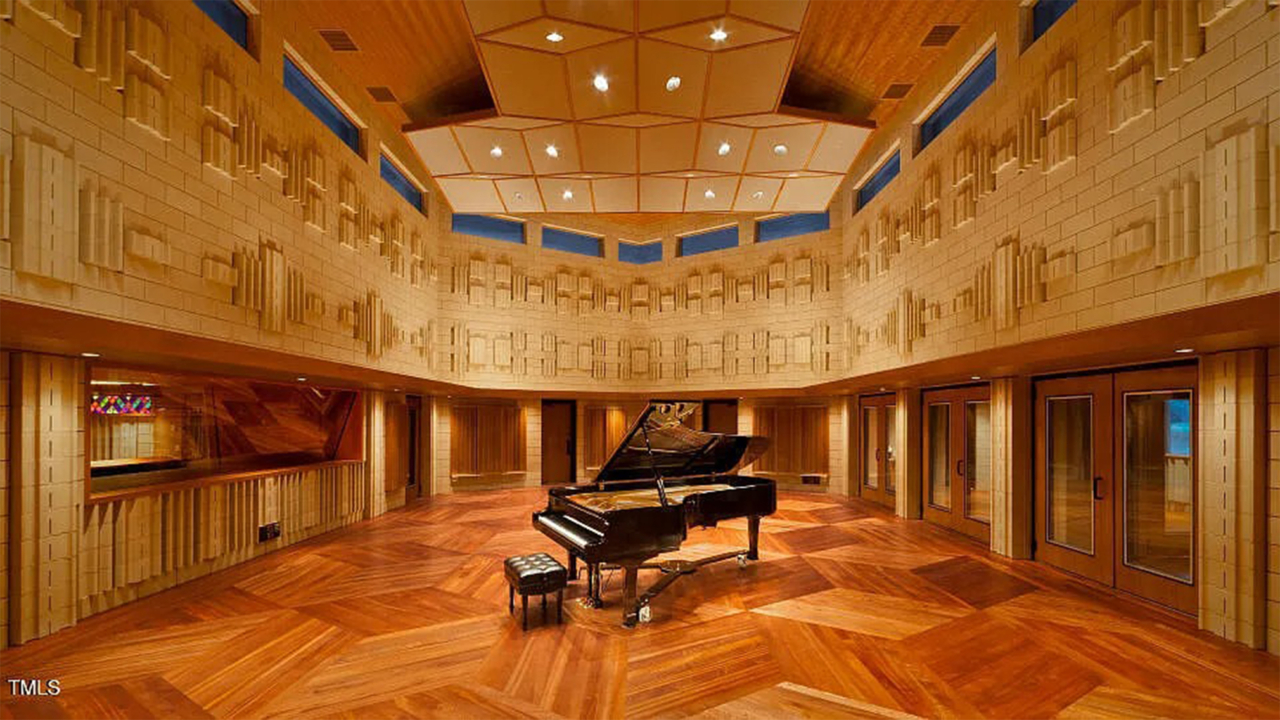When Is The Best Time to Buy a House?


Written by Susan Kelleher on September 14, 2025
Edited by Jessica Rapp and Alycia Lucio
Key takeaways
- Late summer and winter often bring less competition and more room for negotiation.
- Spring and early summer have the most listings but also the highest competition.
- Key timing factors include local market trends, interest rates, and personal readiness.
The best time to buy a house depends on your goals, circumstances, and location. The housing market is seasonal, and different times of year present buyers with different advantages, ranging from more new options to sellers ready to make a deal. Late summer and early fall are especially ripe with opportunities, offering buyers plenty of choices at a time when sellers are cutting prices.
You can evaluate the best time to buy in your market by looking at:
- The best month or season based on market trends, especially new listings, total inventory, price cuts, homes selling over list price, and more.
- The best time for you, based on your personal financial circumstances and moving timeline
For many buyers, moving is a choice that happens on their own timeframe. For others, it’s a necessity that doesn’t allow time for much planning. To the extent that you can control when you move, here are some insights into the best time of year to buy.
When is the best month to buy a house?
August represents a unique opportunity for buyers. Inventory is typically still high, giving buyers plenty of options to choose from, and sellers are starting to ramp up price cuts on homes that have been on the market since spring.
Several other months also offer buyer potential: Sale prices tend to bottom out in November. April and May feature the most new listing options. Price cuts typically peak in July and August, and, nationally, October historically offers the largest selection of homes.
The best month for you depends on your priorities, your finances and how soon you can move.
Buy in January for a better price
Since more buyers are shopping in the spring, buying between March and May (or earlier if you live in a warmer climate) could cost you more than if you’d bought in the fall or winter months. According to a Zillow analysis of listing and sales data for U.S. homes sold in 2024, 35% of buyers paid above list price in May and June while in January, 24% of buyers paid more than sellers were asking. For buyers looking for discounts from list prices, the best time to buy is late fall and early winter.
Keep in mind, fewer homes tend to go up for sale in the cold winter months and around the busy holiday season, so the selection of fresh for-sale homes may be limited.
| Highest number of homes sold above list price | Lowest number of homes sold above list price |
| May and June | January |
Buy in July and August for price cuts
In 2024, price cuts were most common between July and August (26%). The fewest price cuts were in December, when 17% of sellers lowered prices. Winter prices, however, often reflect price cuts that were taken earlier so there are deals to be had at year’s end, too.
| Highest share of price cuts in 2024 | Lowest share of price cuts in 2024 |
| July and August (26%) | December (17%) |
The following chart shows the share of listings with a price cut by month in the nation’s top 100 markets. Use the drop-down menu to see when price cuts are highest in your market.
Share of listings with a price cut per month for 2024 by region
Buy in October for the largest selection of homes
October tends to have the largest number of homes for sale. Inventory at this time includes new listings, homes that haven’t sold from the spring, and homes that have lingered even longer on the market. By the time February rolls around, the number of for-sale homes shrinks to its lowest level of the year.
| Month with the largest number of homes listed for sale | Month with the smallest number of homes listed for sale |
| October | February |
The following chart shows housing inventory levels by month in the nation’s top 100 markets. Use the drop-down menu to see when total inventory is highest in your market. While many markets follow the national trend, others have seen their highest numbers of for-sale homes in other months, like June and August.
Total for-sale inventory per month for 2024 by region
Best time of year to buy a house
Buy in late summer for more fresh choices, lower prices
Late summer is the best season to buy a house if you want a shopping experience with plenty of total options to choose from and lower prices as sellers work to get their homes sold before the fall. If that scenario fits you, the best month to buy a house is August.
Late fall and winter generally have fewer options but more flexibility in price, while spring and summer offers tend to offer buyers more options, but less negotiating power.
Keep in mind, fewer homes are for sale in the cold winter months, so the selection of for-sale homes is likely to be more limited.
Busiest time to buy a house
Buy in April and May for the most new options
If you want the most homes to choose from and don't mind paying a premium, April and May have the most new listings.
A majority of listings hit the market in a short window between April and June. A Zillow analysis in 2024 found that new listings peaked outside of those months in only four of the nation’s top 100 markets. Of those, three metros in the South reached peak new listings in March. Metros in colder places like Buffalo tended to have the most new listings later in the Spring.
| Month with the most new listings | Month with the fewest new listings |
| April | December |
Is it a good time to buy a house?
The best time to buy a house depends on your personal goals and circumstances, market conditions and the state of the economy, both national and local. Some things to consider:
Mortgage rates
Changes in mortgage interest rates can have a big impact on affordability and what you pay for your mortgage every month. As of September 11, 2025, the average mortgage interest rate in the U.S. for a 30-year fixed rate mortgage was 6.35%, which is lower than it had been for most of the year. Zillow economists predict it will remain about at that level for the remainder of the year. However, rates can fluctuate daily, so it's important to monitor current trends and shop around for the best rates.
Your financial readiness
The price of homes and the down payment needed to buy one means that most people save for years before shopping for a home to buy. Having a stable income, good credit and savings are needed for a mortgage. If you’re unsure about what you can afford, you can use Zillow’s BuyAbility tool to get a personalized, real-time estimate of affordability based on your financial details you provide and up-to-the-minute mortgage interest rates.
Find homes in your budget with BuyAbility℠
Market conditions
On a local level, your decision to buy could be affected by buyer demand, the local job market, the number of homes for sale, and the local rental market. You can keep a pulse on local market trends using Zillow's Home Value hub. And you can see whether you’re in a buyer’s or seller’s market by checking Zillow’s Market Heat Index.
Regional variations
The climate in your area can have an impact on buying opportunities. For example, in warmer regions like California and Florida the market may stay active year-round or get going earlier in the year, while colder climates often see a slowdown in winter that can give buyers more negotiating power.
Economic conditions
The U.S. economy – particularly inflation and the job market – influence the housing market, especially when it comes to mortgage interest rates.
Inventory
The number of homes for sale fluctuates throughout the year. Spring is typically when the most homes come on the market, giving buyers the most fresh choices. Inventory climbed in 2025, as builders completed homes and more sellers listed their homes.
Home prices
After soaring to record highs in a few short years during the pandemic, home values have leveled off and even declined in some markets. Buyer demand ultimately determines the pace of home value growth or decline, so knowing what’s happening in your local market can help you factor that information into your decision-making.
National, state and local economic conditions can affect the housing market – and your decision to buy. Nationally, things like interest rates, the job market and the overall health of the U.S. economy can impact the housing market. On a more local level, your decision to buy could be affected by buyer demand, the local job market, the number of homes for sale and the local rental market.
When do houses go on the market?
Most homes are listed for sale in the spring. Sellers have held back in recent years, mostly due to the super low interest rates they got when they bought or refinanced during the early years of COVID, when rates dropped below 3%. In 2025, however, they returned to the market, pushing up the number of homes for sale. Whether those levels remain depends on market conditions, and whether sellers think they can fetch the price they want.
What to consider before buying a house
Buying before you're financially ready or over-extending yourself could leave you at risk of losing your home down the road due to foreclosure or default. Economists generally recommend you spend no more than a third of your income on housing for it to be affordable. You want to be sure you have enough money after paying the mortgage to cover utilities, meet other financial obligations, and enjoy your life.
If you’re renting, you can use Zillow’s Rent vs. Buy Calculator to see whether it’s cheaper to rent or buy.
Some other considerations:
Maintenance expenses
Zillow research in 2023 found that the hidden costs of homeownership average more than $15,000 a year when you include things like taxes, insurance, utility payments, and maintenance. In some markets, the costs are even higher. And if the home hasn’t been maintained, you could be spending more than you expected to fix and update it.
Your mental preparedness
Owning a home is a new lifestyle. You’ll have more responsibilities than if you were renting, including maintenance, repairs and upgrades.
Relocation possibility
Research shows it costs about 10%-15% of the sales price to sell a home. Generally, it takes about 7-9 years to cover those expenses, although it could take longer in more expensive markets. While you can sell sooner, you might not recoup your initial purchase and selling expenses. Staying in your home longer means you could earn equity from home appreciation and from paying down your mortgage.
Ultimately, the best time to buy is when you’re prepared financially and emotionally to take the leap.
Resources
- To get a personalized estimate of what you can afford based on your individual circumstances and current interest rates, check out Zillow Home Loan’s BuyAbility tool.
- To find a real estate agent with expertise in your market, connect with one of Zillow’s partner agents.
A local agent can help you stay competitive on a budget.
They’ll help you get an edge without stretching your finances.
Talk with a local agent


